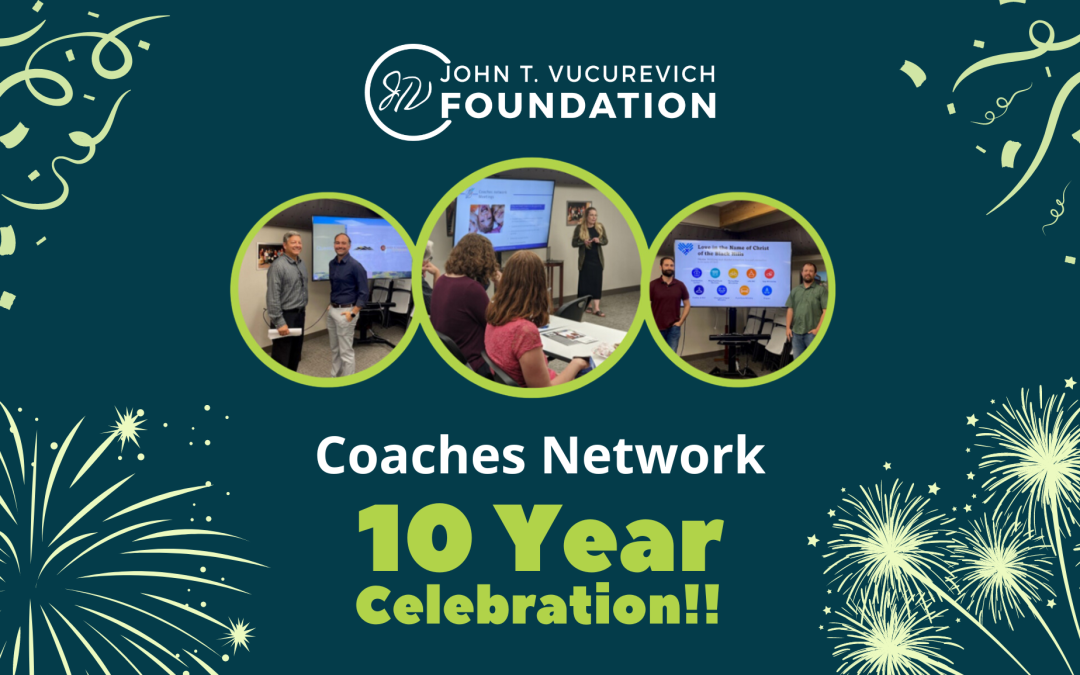It’s more than just luck that keeps our nonprofits collaborating. Since 2014, social services professionals from the Rapid City region have met once a month to share resources, make connections, and break bread at a meeting called the Coaches Network.
But how does JTVF maintain momentum for a monthly meeting of 35 individuals?
-
- A nice lunch is a must. Food not only gets people in the door but nourishes a sense of community. Social service professionals rarely have expense accounts so something as simple as a nice meal makes them feel part of a community that recognizes their importance and dedication.
- Invite a relevant local presenter. We target organizations that have resources or information that would make a social service provider’s day easier. Think scholarships for low-income clients, affordable housing updates, and car fixing.
- Lead around-the-room introductions and updates. The social service field is one of constant turnover. Introductions help put faces to email addresses. Updates ensure that everyone is in-the-loop on organizational shifts, available resources, or pressing needs.
- Keep a physical book of knowledge. Resource lists are impossible to maintain. Enter the three-ring binder of pamphlets, business cards, and hand-outs. Circulating this book during the meeting ensures that people can share and take whatever is relevant to their work.
After 10 years of engaging the Coaches network, we at JTVF wanted to celebrate how this monthly meeting impacts the work and clients of attendees. So we sent out a survey. To make sure we honored the time these organizations had not only put into our survey but how each serves our community, all respondents were entered into a drawing for $2,500 for their organization! (Congrats to winners Black Hills Special Services Cooperative, Pennington County Human Services, Western South Dakota Community Action, and Working Against Violence, Inc.)
Gems from the Survey
This monthly gathering does more than connect organizations, it impacts our community at large! Check out these inspiring findings from the 54 individuals who completed our Coaches Network survey:
-
- The Coaches Network is all about learning and growing together. Some members have organized poverty-informed training sessions for staff and program participants, like hosting a Poverty 101 training for Health Scholars to equip future healthcare providers with crucial knowledge.
- Our Coaches believe in meeting clients where they are. Members shared how they’ve adapted schedules or service delivery methods to accommodate clients facing transportation obstacles, ensuring no one misses out on vital support.
- Collaboration is key! Many respondents highlighted the importance of forming partnerships with other organizations and agencies to enhance resource sharing and referrals. From sharing updates at monthly meetings to providing direct assistance through community sharing groups, our network is all about supporting one another.
- This group fosters empathy and understanding every step of the way. Members spoke about extending grace for missed appointments, recognizing the challenges faced by those living in poverty, and embracing non-judgmental attitudes towards clients.
- They’re not just talking the talk; they’re walking the walk. Some participants are taking action to address systemic issues related to poverty, whether it’s advocating for policy changes or participating in community events to make a difference.
Join us in celebrating these incredible efforts to make our community stronger and more supportive for our neighbors!



